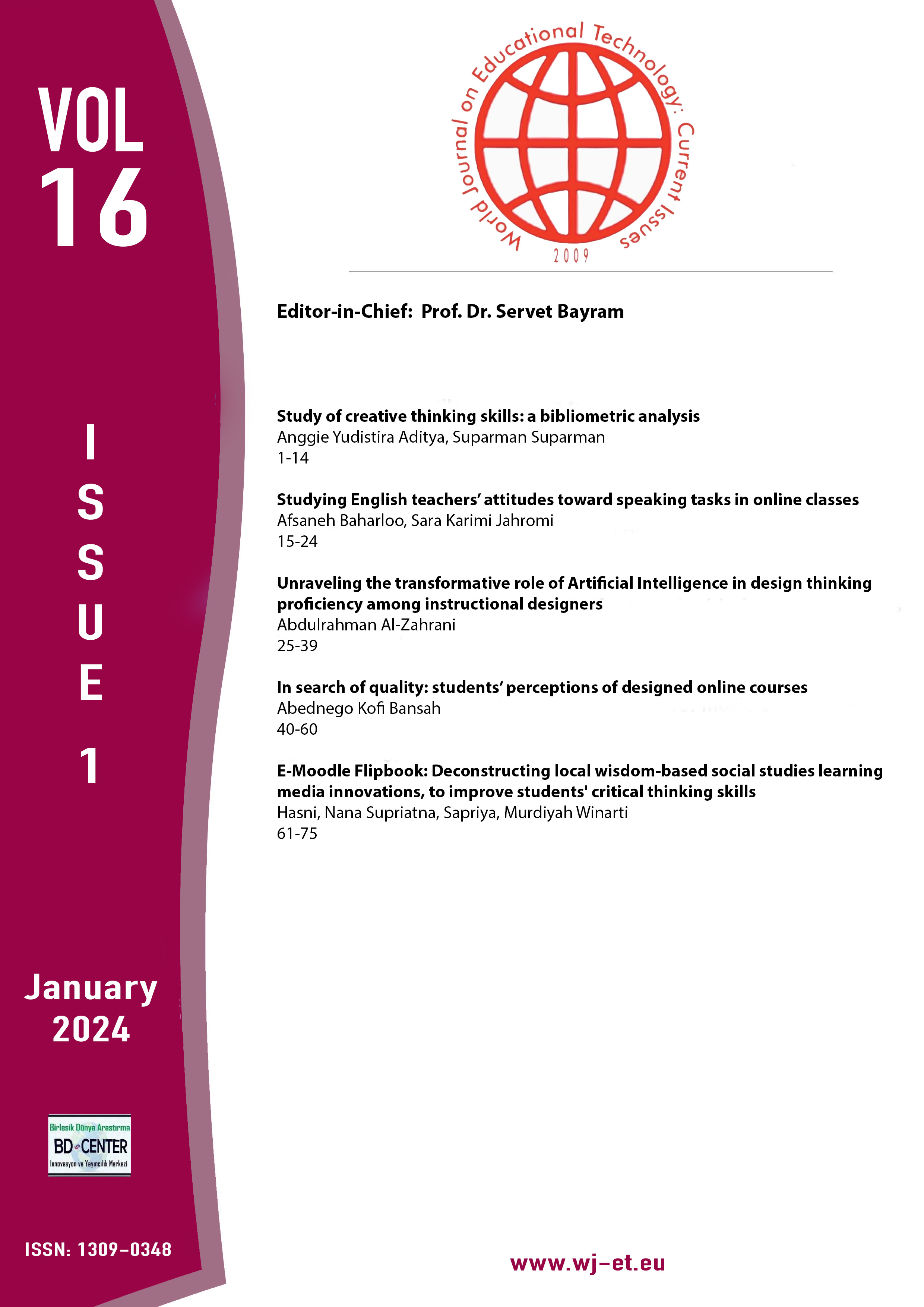Unraveling the transformative role of Artificial Intelligence in design thinking proficiency among instructional designers
Main Article Content
Abstract
This study investigates the factors that influence the integration of Artificial Intelligence (AI) in design thinking among instructional designers. It explores the perceptions of instructional designers regarding the impact of AI on design thinking and the challenges associated with its integration. The research employs quantitative methodology, utilizing an online survey questionnaire distributed to 152 instructional designers. Descriptive and MANOVA tests are used for analysis. The findings shed light on several influential factors including gender, education level, years of experience, awareness of AI implications, subjective expertise, AI actual integration, and self-confidence. Gender differences are observed, with male instructional designers perceiving a higher impact of AI compared to their female counterparts. Education level plays a significant role, with participants holding bachelor's degrees or PhDs demonstrating a deeper understanding of AI's potential in design thinking. The study concludes that addressing gender differences, enhancing education and awareness, supporting early-career professionals, promoting hands-on experience, and building self-confidence is crucial for successful AI integration in design thinking.
Keywords: AI; artificial intelligence; design thinking; instructional design; instructional designers
Downloads
Article Details

This work is licensed under a Creative Commons Attribution 4.0 International License.
World Journal on Educational Technology: Current Issues is an Open Access Journal. The copyright holder is the author/s. Licensee Birlesik Dunya Yenilik Arastirma ve Yayincilik Merkezi, North Nicosia, Cyprus. All articles can be downloaded free of charge. Articles published in the Journal are Open-Access articles distributed under CC-BY license [Attribution 4.0 International (CC BY 4.0)].
Birlesik Dunya Yenilik Arastirma ve Yayincilik Merkezi (BD-Center)is a gold open-access publisher. At the point of publication, all articles from our portfolio of journals are immediately and permanently accessible online free of charge. BD-Center articles are published under the CC-BY license [Attribution 4.0 International (CC BY 4.0)], which permits unrestricted use, distribution, and reproduction in any medium, provided the original authors and the source are credited.
